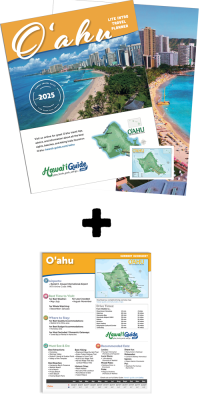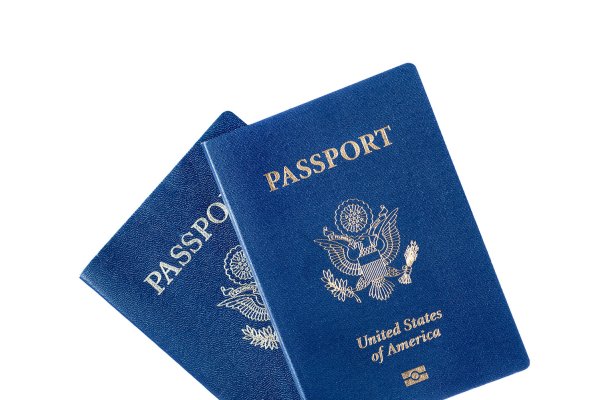
Q: Do I Need a Passport for My Hawaii Vacation?
A: If you are a US citizen, you do not need your passport, visa, or any special documents to enter Hawaii. Of course, if you plan to travel to another country before or after your vacation in Oahu, you'll need to bring your passport.
If you hold a passport from any other nation, you'll need it when traveling to Hawaii (or anywhere else in the US).
Q: What's the Time Zone in Oahu, Hawaii?
A: Hawaii operates on its own time zone known as Hawaiian Standard Time (HST). Hawaii does not observe daylight saving time, so the time difference between Hawaii and other US states varies depending on the time of year.
Hawaiian time is five hours behind Eastern Standard Time and two hours behind Pacific Standard Time. The time difference between the summer months (March through November) is six hours and three hours, respectively.
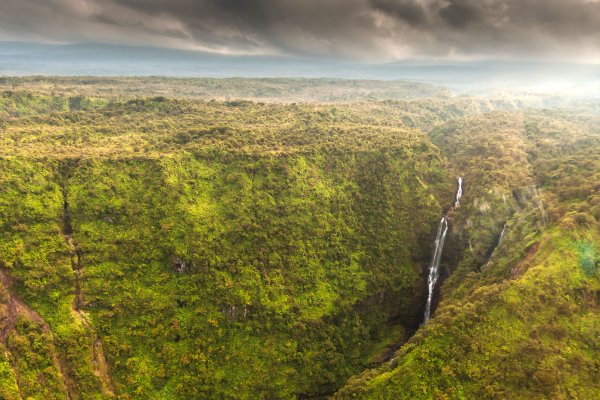
Q: What's the Weather Like in Oahu?
A: Warm weather lovers rejoice — Oahu is a tropical paradise year-round. It's the driest of the Hawaiian islands, with any rain showers passing through quickly before the sun returns.
Highs range anywhere from 80-89 degrees, while lows average 65-75 degrees. Meanwhile, swimming and watersports are possible every month of the year, with sea temperatures averaging between 75-79 degrees.
Q: When's the Best Time of Year to Visit Oahu?
A: Since the weather is great year-round, there's no "bad" time for a vacation in Oahu. If you'd like to avoid the most crowded times and expensive accommodation, plan your trip for the spring or autumn months.
April-May and September-October are generally the best months for a Hawaii vacation. The winter months are busier with snowbirds escaping the cold, while summers draw vacationing families with children.
Depending on your interests, though, there may be some exceptions to this rule. Winter is big wave season on the North Shore, so this is the best time to visit if you want to surf (or watch the pros in action). November through May is also the season for whale watching tours.
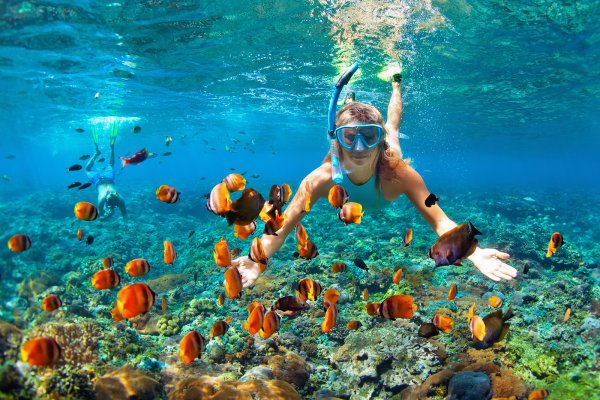
Q: Which Areas of Oahu Should I Visit?
A: Oahu encompasses just under 600 square miles, but there's an endless amount of things to see and do while on the island. Here's a brief overview of Oahu's main regions and attractions:
Honolulu & Waikiki Beach: white sand beaches, resorts, shopping & dining, Diamondhead State Park
The East Shore: quiet coastal towns, mountain hikes, snorkeling, kayaking
North Shore: 51 beaches, big wave surfing in the winter, snorkeling & diving in the summer months
Central Oahu: scenic winding roads, lush forests, pineapple plantations, Pearl Harbor, Pearl City
Leeward (West) Coast: rural, rugged, remote, untouched beaches
With arrivals coming into Honolulu and endless resorts along Waikiki Beach, many visitors spend the bulk of their vacation in this area. If time allows, venture out of the city to explore all that "The Gathering Place" has to offer.
Q: What Belongs on My "Must See & Do" List?
A: It's impossible to provide an exhaustive list of the best Oahu activities and attractions, but we'll do our best. Here are some items you definitely need to tick off your Oahu vacation bucket list:
Go up for a helicopter or airplane tour of the island
Take a tour of historic Pearl Harbor
Sign up for surf lessons at Waikiki Beach
Drive up to the North Shore and watch professional surfers tackle the big waves
Hike to the top of Diamondhead for an unforgettable view of Waikiki
Dive with sharks (in the safety of a shark tank)
Visit Valley of the Temples Memorial Park
Watch fire dancers and hula dancers perform at a beachfront luau
Pick your own pineapple at a pineapple plantation
Of course, if you want to sit back and relax on the beach, that's perfectly fine too. After all, that's what a vacation in Oahu is all about!
FREE 2025 DOWNLOADS
Oahu Intro Visitor Guide
+ Our Summary Guidesheet!
Includes the top must-see & do attractions, best times to visit, a monthly weather & visitor summary, and our tips on how to save when booking your car rental, tours, and activities. Plus, grab our free Oahu Summary Guidesheets.
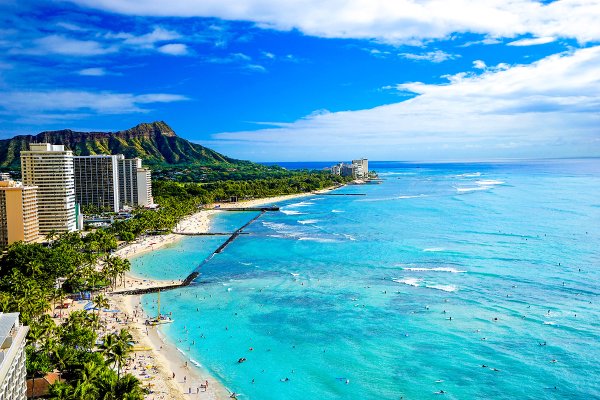
Q: Where Are the Best Beaches in Oahu?
A: Whether you want to experience crashing waves, tranquil reefs, or complete isolation, you'll have no shortage of beautiful beaches in Oahu.
Waikiki Beach needs no introduction — it's one of the most famous stretches of sand in the world. Waimea Bay on the North Shore is the place to go to watch big wave surfers in action. During the summer months, the water is calmer, making this beach a delightful place for strolling or sunbathing.
What if you want to escape from the crowds? Head to the quieter East Shore and park yourself on Lanikai Beach or Kailua Beach Park.

Q: Do I Need to Rent a Car in Oahu?
A: If your visit is limited to Honolulu and the Waikiki area, you shouldn't need a car to get around. The area has an excellent public transportation system, with buses, trolleys, and taxis available everywhere. It's also highly walkable, and you can reach most of the city's best restaurants, resorts, and shopping centers on foot.
If you want to venture outside the city (and you should!), a rental car is your best choice. This will allow you to explore the island at your own pace and reach secluded areas untouched by public transportation.
Q: What Should I Pack for a Vacation in Oahu?
A: If you love dressing casual, you'll love your vacation wardrobe for traveling to Hawaii. Leave those coats, scarves, boots, and suits at home, because you won't need any of that on the island.
Feel free to dress comfortably and informally wherever you go. Bathing suits, shorts, T-shirts, tank tops, and sandals are acceptable year-round. Sundresses and aloha-style shirts are usually fine even at fancier restaurants and resorts.
It's not a bad idea to bring a light jacket or rain gear if you plan on doing any hikes in the mountains. You'll also want a sturdy pair of sneakers or hiking boots. Be sure to pack plenty of sunscreen (you'll need it), preferably an eco-friendly brand that won't harm the reefs.


